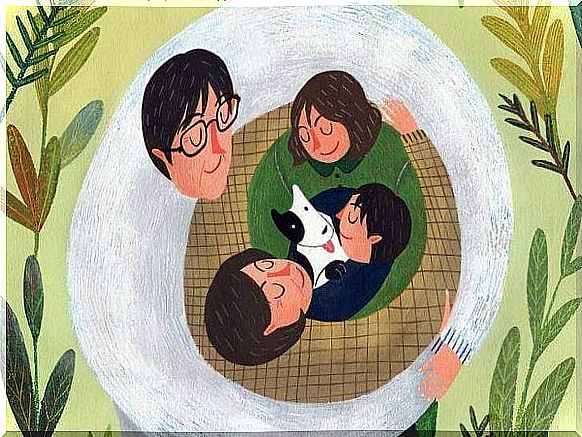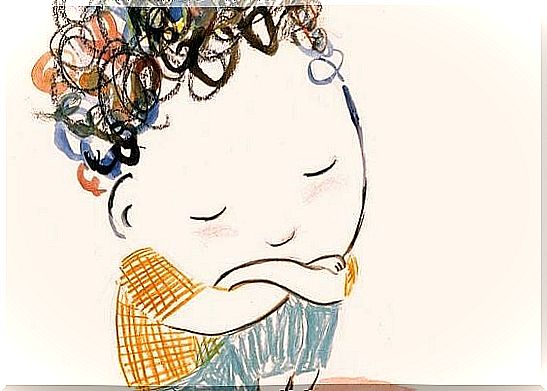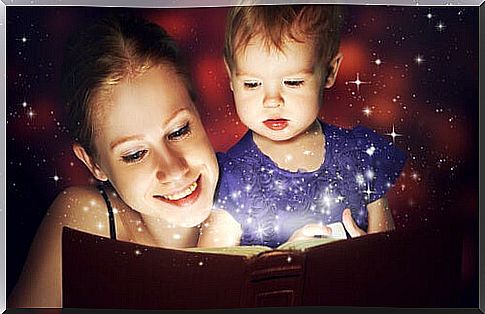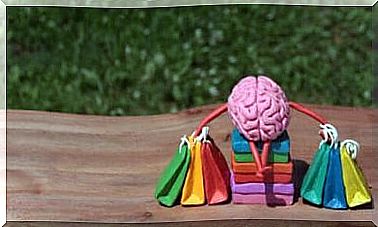Fantastic Parents Are The Ones Who Excite Their Children

There are good parents, and then there are great parents. There are many different ways to raise children, and they are as varied and multicolored as the number of parents available. Most parents want the best for their children, love them and want them to be happy. Therefore, they establish rules and boundaries that create a unique system for their own home. The dynamics are different for each family and can be changed and revised as the adults deem necessary.
The rules and boundaries set by the parents must be clear, direct and firm. In addition, they must be revised and rewritten as often as necessary. It forms the basis of each family’s dynamic, which varies and fluctuates according to the stage the family is in. These situations, spiced with emotions and peppered with unforeseen events, will form the broth of the psycho-emotional development of each family member.
Good parents and great parents
Augusto Cury, physician, psychiatrist, therapist, and author, wrote a book called Brilliant Parents , Fascinating Teachers that provides tips on how to raise happy, proactive, confident, and intelligent children. In addition, the habits of good parents and great parents are analyzed.
Children need parents who can speak their language and penetrate their hearts.

1. Good parents give gifts, while great parents give themselves
Good parents satisfy their children’s desires to the extent that resources allow. They buy clothes and toys, hold birthday parties, take them on trips, etc. Great parents give them something more valuable, something that can not be bought for money. They give them all their own stories and experiences. They share their feelings and their time. This habit of amazing parents contributes to the development of their children’s self-esteem, emotional intelligence, ability to deal with loss and frustration, and ability to speak and listen.
2. Great parents nurture their children’s bodies, while great parents nurture their personalities
Good parents feed their children so they are healthy, while great parents also care about nurturing their intelligence and emotions. Being educated, having good financial status, having an excellent marriage and sending them to good schools is not enough for their psychological health. It is important to prepare children to be, not just to have. This habit of great parenting contributes to the development of their children’s sense of security and their abilities for leadership, reflection, courage, optimism, fear management and conflict prevention.
Good parents correct their children’s mistakes, while great parents teach them to think
When parents correct their child’s mistakes and tell them the same things over and over again, they just repeat words and complaints that have no effect on the children. It only leads to aggression, frustration and distance. We need to surprise our children. Excite them. Make them reflect. This habit of amazing parents contributes to the development of their children’s critical awareness, ability to think before they respond, fidelity, honesty, ability to ask questions and social responsibility.
“Emotional intelligence begins to develop in the earliest years. All the little conversations children have with their parents, teachers, and with each other carry emotional messages. “
–Daniel Goleman–

4. Good parents prepare their children for praise, while great parents prepare them for failure
Good parents prepare their children for triumph, good grades and success in school, work and social relationships. Fantastic parents are aware that it is harder to face failure so they help them not to be afraid of failure. This habit of amazing parents contributes to the development of their children’s motivation, maturity, patience, determination, ability to get along, creativity and ability to take advantage of their opportunities.
5. Great parents talk to their children, while great parents have a dialogue with them
Many parents are not able to have a dialogue with their children about their fears, losses and frustrations. Having a dialogue involves expressing oneself, talking about experiences, sharing one’s secrets from the heart, and going deeper than behavior. By having a dialogue with their children, brilliant parents help them develop solidarity, camaraderie, zest for life, optimism and interpersonal intelligence.
6. Good parents give their children information, while great parents tell them stories
Good parents inform their children, but they do not tell stories or have a dialogue with them. Children do not need authority, money or power as much as they need to spend time with their parents and listen to stories full of emotions and experiences. They need amazing parents who help them develop creativity, resourcefulness, wisdom, schematic reasoning and the ability to find solutions.

7. Good parents give their children opportunities, while great parents never give up
Good parents overlook their children’s mistakes. Fantastic parents never give up, even when their children disappoint them, make mistakes, and suffer emotional distress. Amazing parents believe in their children, try to see what no one else sees in them, help them cultivate ideas and do not dominate them. They help their children develop respect for life, hope, motivation, determination and the ability to question themselves and overcome obstacles and failures.
Sometimes parents lose trust. They feel like bad parents. But it is important to remember that being a parent certainly involves a lot of responsibility, but it always comes from a place of love and simplicity. We can learn child-rearing strategies, we can read Piaget and Vigotsky’s theories, Freud’s psychoanalysis, Gardner’s multi-intelligence theory and Plato’s philosophy for decades, but if we do not love our children, make them excited, teach them to think or initiate things in their memory, no study will or theory be valid or applicable.
It’s about having an impact on your child’s emotional and rational universe and being creative and sincere. It’s about making them excited.









